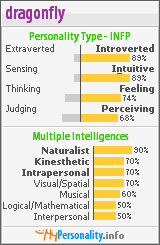
Jasmine has always loved math and enjoys playing with it. I was good at math as a child and so have not passed any math anxiety on to her. Math is never "hard" at our house--maybe a "challenge", but challenges are always presented as something fun here. Jasmine sometimes begs me for math problems and fairly often spontaneously comes out with math gems like above. I play games that include math with her sometimes and very occasionally ask her a real life math problem such as "I paid $15.00 for this gas but I only put in $14.15. How much will I get back?" (After some thought, she answered that one correctly.)
I recently read A Mathmatician's Lament by Paul Lockhart and it's been on my mind, probably inspiring this post as much as anything. If you have math anxiety or have children learning math, please read this. It will open your eyes to what math education could be.A musician wakes from a terrible nightmare. In his dream he finds himself in a society where music education has been made mandatory. “We are helping our students become more competitive in an increasingly sound-filled world.” Educators, school systems, and the state are put in charge of this vital project. Studies are commissioned, committees are formed, and decisions are made— all without the advice or participation of a single working musician or composer.
I'm definately thinking about math education differently after reading this.
Since musicians are known to set down their ideas in the form of sheet music, these curious black dots and lines must constitute the “language of music.” It is imperative that students become fluent in this language if they are to attain any degree of musical competence; indeed, it would be ludicrous to expect a child to sing a song or play an instrument without having a thorough grounding in music notation and theory. Playing and listening to music, let alone composing an original piece, are considered very advanced topics and are generally put off until college, and more often graduate school.
As for the primary and secondary schools, their mission is to train students to use this language— to jiggle symbols around according to a fixed set of rules: “Music class is where we take out our staff paper, our teacher puts some notes on the board, and we copy them or transpose them into a different key. We have to make sure to get the clefs and key signatures right, and our teacher is very picky about making sure we fill in our quarter-notes completely. One time we had a chromatic scale problem and I did it right, but the teacher gave me no credit because I had the stems pointing the wrong way.”
In their wisdom, educators soon realize that even very young children can be given this kind of musical instruction. In fact it is considered quite shameful if one’s third-grader hasn’t completely memorized his circle of fifths. “I’ll have to get my son a music tutor. He simply won’t apply himself to his music homework. He says it’s boring. He just sits there staring out the window, humming tunes to himself and making up silly songs.”
In the higher grades the pressure is really on. After all, the students must be prepared for the standardized tests and college admissions exams. Students must take courses in Scales and Modes, Meter, Harmony, and Counterpoint. “It’s a lot for them to learn, but later in college when they finally get to hear all this stuff, they’ll really appreciate all the work they did in high school.”
Of course, not many students actually go on to concentrate in music, so only a few will ever get to hear the sounds that the black dots represent. Nevertheless, it is important that every member of society be able to recognize a modulation or a fugal passage, regardless of the fact that they will never hear one. “To tell you the truth, most students just aren’t very good at music. They are bored in class, their skills are terrible, and their homework is barely legible. Most of them couldn’t care less about how important music is in today’s world; they just want to take the minimum number of music courses and be done with it. I guess there are just music people and non-music people. I had this one kid, though, man was she sensational! Her sheets were impeccable— every note in the right place, perfect calligraphy, sharps, flats, just beautiful. She’s going to make one hell of a musician someday.”.....
Sadly, our present system of mathematics education is precisely this kind of nightmare. In fact, if I had to design a mechanism for the express purpose of destroying a child’s natural curiosity and love of pattern-making, I couldn’t possibly do as good a job as is currently being done— I simply wouldn’t have the imagination to come up with the kind of senseless, soul-crushing ideas that constitute contemporary mathematics education.....(more)




1 comment:
You have a talented child. Encourage her. My son, now a Ph.D. candidate in math, went to a performance of The Nutcracker as a pre-schooler. During one of the ennuis in the peformance (The Sugar Plum fairy?), he leaned over to my wife and said, excitedly, "Mom, six fours is 24!" And sure enough, the set for the dancers was decorated by rectangular blocks of flowers, in rows 6x4. Your girl seems on the same track.
Post a Comment